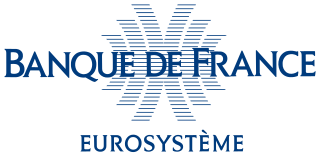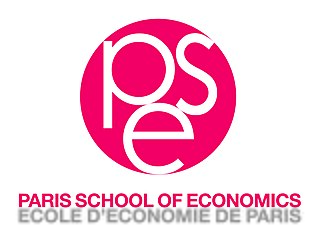
The École nationale d'administration was a French grande école, created in 1945 by President Charles de Gaulle and principal author of the 1958 Constitution Michel Debré, to democratise access to the senior civil service. It was abolished on 31 December 2021 and replaced by the Institut national du service public (INSP).
The Conservatoire national des arts et métiers is an AMBA-accredited French grande école and grand établissement. It is a member of the Conférence des Grandes écoles, which is an equivalent to the Ivy League schools in the United States, Oxbridge in the United Kingdom, the C9 League in China, or the Imperial Universities in Japan. CNAM is one of the founding Schools of the Grande école system, with École polytechnique and Ecole Normale Supérieure in 1794, in the wake of the French Revolution.

ESCP Business School is a French business school and grande école founded in Paris and based across Europe with campuses in Paris, Berlin, London, Madrid, Turin, and Warsaw. It is known as one of the trois Parisiennes, together with HEC Paris and ESSEC. Established in 1819, it is considered the world's oldest business school. ESCP Business School runs BSc, MBA, Executive MBA, master's degree programs in finance and management, executive education programs, and PhD programs.

The Bank of France is the French member of the Eurosystem. The bank doesn't translate its name to English and uses its French name Banque de France in all English communications. The bank was established by Napoleon Bonaparte in 1800 as a private-sector corporation with unique public status. Charles de Gaulle's government nationalized the bank in 1945 after several governance changes in the meantime. The Bank of France was granted note-issuance monopoly in Paris in 1803 and in the entire country in 1848, issuing the French franc. It remained France's sole monetary authority until end-1998, when France adopted the euro as its currency.

Banking regulation and supervision refers to a form of financial regulation which subjects banks to certain requirements, restrictions and guidelines, enforced by a financial regulatory authority generally referred to as banking supervisor, with semantic variations across jurisdictions. By and large, banking regulation and supervision aims at ensuring that banks are safe and sound and at fostering market transparency between banks and the individuals and corporations with whom they conduct business.

La Banque postale is a French postal bank, created on 1 January 2006 as a subsidiary of La Poste, the national postal service.

The Paris School of Economics is a French research institute in the field of economics. It offers MPhil, MSc, and PhD level programmes in various fields of theoretical and applied economics, including macroeconomics, econometrics, political economy and international economics.

The Capital Requirements Directives (CRD) for the financial services industry have introduced a supervisory framework in the European Union which reflects the Basel II and Basel III rules on capital measurement and capital standards.

Nikolay Nenovsky is a Bulgarian economist, working in the fields of monetary theory and policy, monetary history and history of economic thought. He is Professor of economics at the University of Picardie Jules Verne, LEFMI, Amiens, France from 2012. Nikolay Nenovsky is currently associate researcher at SU HSE, department of theoretical economics and also associate professor at RUDN University. Since June 2020 he is a Member of the Governing Council of the Bulgarian Central Bank.

The Belgian Banking Commission was a Belgian financial supervisory authority created in 1935 in the aftermath of the financial turmoil of the early 1930s. It was later renamed CBF in 1990, then CBFA in 2004.

Toulouse School of Economics is a school of economics, affiliated with Toulouse 1 Capitole University, a constituent college of the Federal University of Toulouse Midi-Pyrénées. It is located in the city of Toulouse, France.
Volume! The French Journal of Popular Music Studies is a biannual peer-reviewed academic journal, created in 2001, and "dedicated to the study of contemporary popular music".

The French Prudential Supervision and Resolution Authority, formerly known as Prudential Supervision Authority, is a financial regulatory authority within the Bank of France, which exercises prudential supervision of regulated French financial firms such as banks and insurance companies. Since 2014, it has been France's national competent authority within European Banking Supervision.

European Banking Supervision, also known as the Single Supervisory Mechanism (SSM), is the policy framework for the prudential supervision of banks in the euro area. It is centered on the European Central Bank (ECB), whose supervisory arm is referred to as ECB Banking Supervision. EU member states outside of the euro area can also participate on a voluntary basis, as was the case of Bulgaria as of late 2023. European Banking Supervision was established by Regulation 1024/2013 of the Council, also known as the SSM Regulation, which also created its central decision-making body, the ECB Supervisory Board.
Werner F.M. De Bondt is one of the founders in the field of behavioral finance. He is also the founding director of Richard H. Driehaus Center for Behavioral Finance at DePaul University in Chicago. Previously, he was the Frank Graner Professor of Investment Management at the University of Wisconsin-Madison, and the Thomas F. Gleed Chair of Business Administration at Albers School of Business and Economics at the Seattle University.

Montpellier Business School is a French business school located in Montpellier. Founded in 1897 by the Chamber of Commerce and Industry of Montpellier, the Grande école is one of the oldest of the French Écoles Supérieures de Commerce.

The Alliance for Financial Inclusion (AFI) is a policy leadership alliance owned and led by member central banks and financial regulatory in developing countries with the objective of advancing financial inclusion.

Raphael Douady is a French mathematician and economist. He holds the Robert Frey Endowed Chair for Quantitative Finance at Stony Brook, New York. He is a fellow of the Centre d’Economie de la Sorbonne, Paris 1 Pantheon-Sorbonne University, and academic director of the Laboratory of Excellence on Financial Regulation.

Ghislain Deslandes is a philosopher born in Angers (France) on the 16th of August 1970.

François Villeroy de Galhau is a French civil servant and banker who has served as Governor of the Bank of France and ex officio President of the French Prudential Supervision and Resolution Authority since 2015.

















